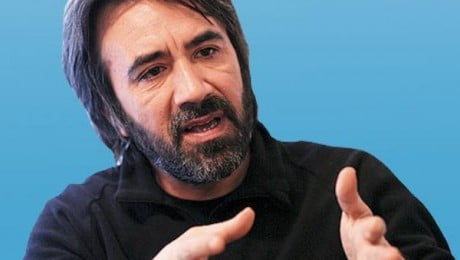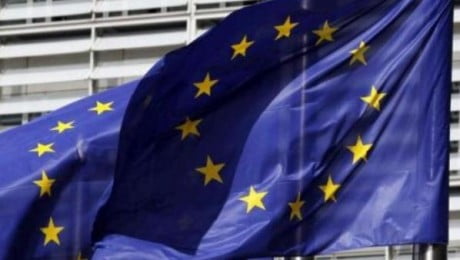Keyword: Hizmet (Gulen) movement

Gov’t targets Hizmet to distract attention from corruption, says director
Demirkubuz believes that all the “good things” that the government did prior to the 2010 referendum were to guarantee its position, rather than celebrating the rule of law and justice, as evidenced by the fact that the prosecutors who were called heroes yesterday are called traitors today. Demirkubuz urged society to go through an exercise of self-criticism in terms of the preference for power over freedoms.

Kimse Yok Mu chair Cingöz: Everyone feels some type of oppression in Turkey
Kimse Yok Mu was designated a nongovernmental organization in March 2002. It had started its work following a devastating earthquake in Turkey in August 1999. Kimse Yok Mu now reaches out to different regions of the world affected by catastrophes. It is officially recognized by Turkey as an association that works for “public interest.”

Chronology of Dec. 17: The stones are settling into place…
İSTANBUL Dec. 17, 2013: On the morning of Dec. 17, Turkey wakes up to a bribery and corruption operation. Simultaneous operations in İstanbul and Ankara take place after an investigation that included allegations of land being opened up to illegal city zoning, bribery and money laundering. The operations, which are carried out on the orders […]

“Peace and Sustainable Development: A Two-Way Relationship” Panel
Mr. Huseyin Hurmali, Vice-President of the JWF emphasized and explained how civil initiatives inspired by scholar Fethullah Gulen have been contributing to both durable peace and sustainable development in about 160 countries around the world. Schools, universities and other educational institutions have been providing high quality science and mathematics education and also contributing to peace through becoming entities of “social mediation” in the regions of conflict.

Now, speaking Turco-Tweetish is more challenging
Volunteers from the Hizmet movement are overseeing the campaign on Twitter to criticize the Turkish government by introducing followers to a trending topic with a new hashtag every day, and since the Hizmet movement has active members in more than 150 countries, their actions on Twitter have exploded.

Turkey, ‘The Devil’s Advocate’ and ‘Titanic’
Questions to challenge the primary and unjustified premise: What judicial (or other) process determined that these corruption investigations were a coup attempt against the government? What proof or evidence do you have to support this most serious claim? What disciplinary process did you undertake to determine that the people that were purged were members and culprits of this ‘coup’? In the absence of evidence and disciplinary process how did you determine these people’s association with Hizmet? When is government corruption not a judicial coup? How can you have the right to unilaterally determine the intent and purpose of these ongoing judicial investigations when your government is implicated in them? If your government can purge over 7,000 police officers (and thereby affect and prevent these investigations) without evidence, due process or disciplinary procedure, do you not set a precedent for every future potentially corrupt government to follow?

Public ad budget unfairly allocated to pro-gov’t media
Separate sources have suggested that several public institutions prefer pro-government dailies and TV stations over other media, an initiative that follows Prime Minister Recep Tayyip Erdoğan’s statements about “the opposition that cooperates with an international conspiracy seeking to topple the government.”

An interesting debate in the European Parliament
It is known that European parliamentarians already talk to people close to Hizmet, so this refusal was interesting. It can even give the impression that the Turkish government is putting pressure on the EP. Of course, Turkey hasn’t that kind of power; if we did, we would have become an EU member years ago. The other impression is that the Hizmet movement is trying to influence the EP’s work.

Somali denies allegations that ‘aid supplies did not reach camp’
The claim was also denied by the person in charge of the camp, Ibrahim Abdinur Muhammed, demonstrating that defamatory activities are being conducted by pro-government media outlets against Hizmet movement.
Muhammed said the organization had helped 450 families living in the camp and that it continues to send assistance to the camps in six other locations in Somali in the form of health and food supplies and clothing as well as education tools.

Interview with the Journalists and Writers Foundation Chairman Mustafa Yeşil: Questioning the Gülen Movement: Truths, Lies, and Conspiracies
The Movement fights against ignorance all around the world, reaches and brings service to people who are forgotten by the governments with their volunteers, and helps enrich their morality with Islam and material worlds with their modern institutions and instruments.

Slandering Turkish schools is treason according to well-known politician
In an interview with the Cihan news agency, Durak showed reaction to Erdoğan’s order to the ambassadors and he visited some of the Turkish schools in foreign countries. “Children of prime ministers and presidents and high-level bureaucrats are sent to these schools opened in Africa and many parts of the world… Many significant people are given education in these schools. I am of the opinion denouncing these schools to the ambassadors instead of supporting them is equal to treason,” said Durak.

Afghan, Pakistani leaders praise Turkish schools at Ankara summit
Afghan President Hamid Karzai and Pakistani Prime Minister Nawaz Sharif made their remarks in response to a question at a joint news conference with Turkish President Abdullah Gül following a trilateral summit in Ankara that focused on security.
“Afghan children are offered high-quality education services. We are very happy about that,” Karzai said, while Sharif said the schools “are doing a perfect job.”

PM Erdoğan also slammed me for my questions on Uludere, says journalist
Ahmet Dönmez, a leading correspondent based in Ankara with the Zaman daily who was sharply rebuked by Prime Minister Recep Tayyip Erdoğan after asking him a question about recent allegations of corruption during a press conference on Feb. 12 and who was proclaimed both a national hero and a traitor on social media outlets shortly thereafter, says that he was also reproached by Erdoğan once before and that this is indicative of the state of journalism in Turkey.

Fenerbahçe’s Yıldırım calls on fans to attend protest
“We consider the dissemination … of wiretaps of Fethullah Gülen Hocaefendi’s conversations an operation, and we condemn and refuse to accept these kinds of activities,” Yıldırım said. Gülen filed criminal complaints over the illegal wiretaps and against the media outlets and websites that published the distorted voice recordings in an attempt to defame the scholar.


















